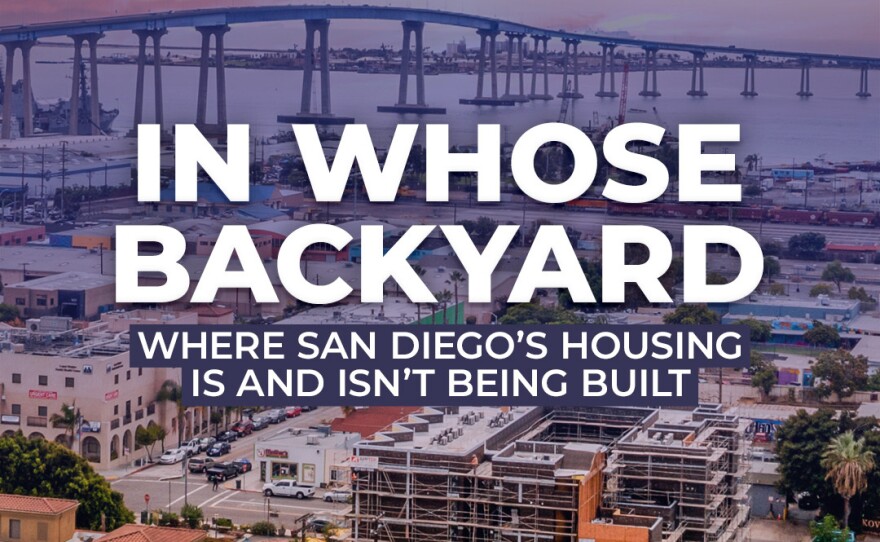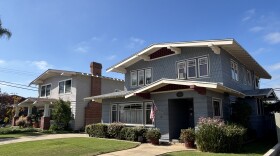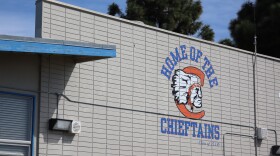A single-family homeowner in Pacific Beach recently transformed their garage into a one-bedroom beach house. Four blocks down the road, another property owner built a new unit on top of their garage, complete with a rooftop deck and private hot tub.
Both new homes, known officially as accessory dwelling units, are glowing with five-star praise from out-of-town guests for cleanliness, quiet neighborhood charm and responsive hosts. On the other hand, neighbors tell a different story — one of frequent summertime parties with beer pong, loud music, screaming and shouting late into the wee hours of the morning. In June, San Diego police had to break up what sounded like a rooftop bachelorette party after midnight, city records show.
“Please do something!!!” one neighbor wrote in a string of code enforcement complaints tied to both short-term vacation rentals.

San Diego officials have for years grappled with two competing realities: A worsening housing and affordability crisis coupled with the business interests of property owners in a world-class destination city. The battle over short-term rentals continues even after the city finally decided to regulate the industry with a tiered licensing system two years ago — a decade after short-term platforms like Airbnb exploded in communities across the country.
There’s just one glaring problem. These two homes in Pacific Beach — and dozens of others just like them across San Diego — aren’t supposed to be rented to anyone for fewer than 30 days. The City Council made it illegal in 2017 to turn new accessory dwelling units, or ADUs, into short-term vacation rentals. The goal was to increase the city’s housing stock and help improve affordability for San Diegans.
But an inewsource/KPBS analysis found city officials have been approving short-term rental licenses on properties that aren’t eligible.
Records show as many as 170 other properties have both a short-term rental license and an ADU. Of those, about 1 in 3 have received complaints of short-term rental violations either through code enforcement or the city’s Get it Done app — many of those complaints mention the city’s prohibition on renting ADUs short-term.
inewsource first exposed gaps in enforcement in 2020. Then-Mayor Kevin Faulconer said the two departments responsible for overseeing this — Development Services with building permits and the Treasurer’s office with short-term rental taxes — would start sharing information to prevent clear violations.
More than five years have passed since then, and officials have only recently gotten a handle on it.
Efforts to reach property owners
inewsource reporters called, emailed and knocked on more than a dozen doors of property owners illegally renting ADUs short-term. None were willing to talk on the record.
A spokesperson told inewsource the city has been enforcing the law and responding to citizen complaints all along. Officials have removed more than 200 listings on short-term rental platforms advertising ADUs and issued thousands of dollars in civil penalties to owners, the spokesperson said.
But it wasn’t until last month that both departments figured out a system to block owners trying to rent ADUs on a short-term basis from obtaining a license to begin with. That change came more than seven years after the ban took effect.
Last year, the city started asking owners questions about the unit they intended to rent short-term, hoping to identify ineligible units that way.
Meanwhile, neighbors have been forced to deal with it. That’s how Matt King describes living for the past several years between the two ADUs on the same street in Pacific Beach.
“People come here all the time,” King said, adding that it’s part of the price to pay when living in San Diego. “If you asked me after the Fourth of July weekend, I’d tell you to take ‘em all down!” he added with a laugh.
Charles Cruz, who lives right next to the ADU with a rooftop deck, describes himself as anti-Airbnb.
“My wife and I are sick of it,” he said. “There’s so many units on our street now and I’ve often wondered, why do we have a hotel-motel district?”

Councilmember Sean Elo-Rivera represents San Diego’s mid-city area, including City Heights, College Area and Rolando. Records show there are 31 properties in his council district with an ADU and short-term rental license — the third highest among his colleagues.
Elo-Rivera told inewsource his office has heard fewer complaints since the city regulated short-term rentals a couple years ago, but he understands the impacts haven’t disappeared — both on neighborhoods and on housing. His office is exploring policies to address the problems occurring in neighborhoods.
As for now, “the law is the law,” he said, referring to the city’s ban on renting ADUs short-term. “It’s just a matter of enforcing the rules that are on the books.”
Councilmember Jennifer Campbell — who represents Ocean Beach, Point Loma and Mission Beach — led the charge in 2023 to regulate San Diego’s short-term rental industry. Today, her council district leads the city with 44 properties that have an ADU and a short-term rental license. She did not respond to requests for comment.
‘Please do something about this illegal rental’
For years, the San Diego region, like many other communities across the state, has been grappling with a housing and affordability crisis that experts say is driven largely by underproduction. Half of San Diego’s housing supply are rentals and only 3% are vacant, data shows.
A regional housing study projected San Diego will need more than 13,500 new housing units every year to meet the demand of all income levels by the end of the decade. Last year, the city only authorized construction on a third of that.
And some who have housing are having trouble keeping it. More people in San Diego fall into homelessness every month than those who manage to leave the streets and find housing.
Following a statewide push, the San Diego City Council eased restrictions around building ADUs in 2017. These small, naturally affordable backyard units have been seen by policymakers as additional tools to chip away at the state’s housing crisis, creating quick and easy infill development in overly developed coastal California cities. The new policies cut permitting costs in half and significantly reduced turnaround times.
In exchange for these new building incentives, the San Diego City Council made it illegal to rent new ADUs for fewer than 30 days. As a result, any ADU permitted after September 2017 is ineligible to be rented short-term — only about 100 existed prior to the ban and are eligible, records show.
ADUs have since exploded in popularity, driven by a bonus program beginning in 2020 that allowed multiple units on a single lot — in some cases, as many as could fit. Nearly 800 ADUs were approved last year alone under the incentive — with one 17-unit project in Clairemont stirring resentment among community members. The City Council repealed that incentive program earlier this year.
But by then, some neighborhoods had already seen a shift.
Take one apartment complex on Front Street in Hillcrest. In 2021, the owner received permits to convert seven attached garages into five accessory dwelling units. It appears some of those units are listed on Airbnb between $800 and $1,600 for five nights.
inewsource reporters analyzed more than 170 addresses for building permits, short-term rental listings, and complaints through city code enforcement and the Get it Done portal. About 1 in 4 of the properties identified had a short-term rental listing associated with what appeared to be an ADU. And city records show neighbors have been pleading with city officials and elected leaders.
“Please do something about this illegal rental,” a complaint says about one of the properties identified. “I’ve also contacted Councilman Stephen Whitburn’s office for help.”
Councilmember Stephen Whitburn
His district — which covers downtown, North Park and Hillcrest — has 33 properties that have an ADU and short-term rental license, the second highest number among his colleagues. He did not respond to requests for comment.
City spokesperson Richard Berg said officials are enforcing the ban. Code enforcement has issued 64 civil penalties at a rate of $1,000 per day, per violation.
As neighborhood complaints come in, code enforcement investigates them — inspecting the property, conducting building permit and license searches, and determining whether violations exist, Berg said. If an ADU is found to be rented short-term, code enforcement issues civil penalties until the host cancels their license, bookings and provides proof.
As for the front end, when owners and hosts apply for a license to begin listing units online, city officials did not have all the information they needed until last month.
Development Services, which is responsible for building permits, produced a list of ADUs that were permitted after the 2017 short-term rental ban took effect. That list will be used by the Treasurer’s office, which is responsible for issuing short-term rental licenses, to validate applications as they come in. Officials started this new process two weeks before inewsource presented the findings of its analysis, Berg said.
The city’s own list shows 141 ADUs, junior ADUs and guest quarters have received short-term licenses.
City staff did not answer questions about why it took so long to put a process in place to prevent new ADUs from being rented short-term. But this type of reactive enforcement — where, without a complaint, the city only stops owners who go to apply for a license or renew — is standard, Berg said.
Michael Wayne with KPBS contributed data analysis to this report.








